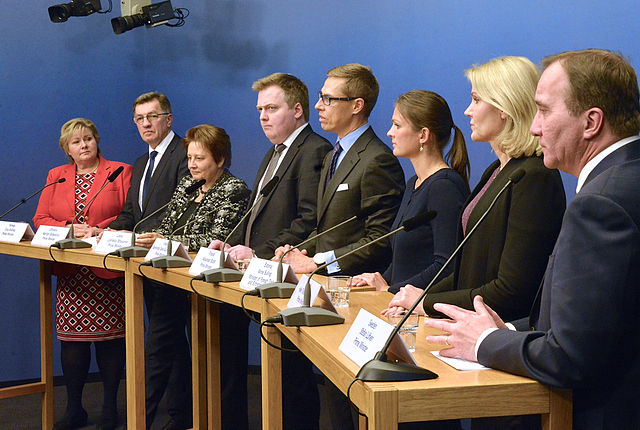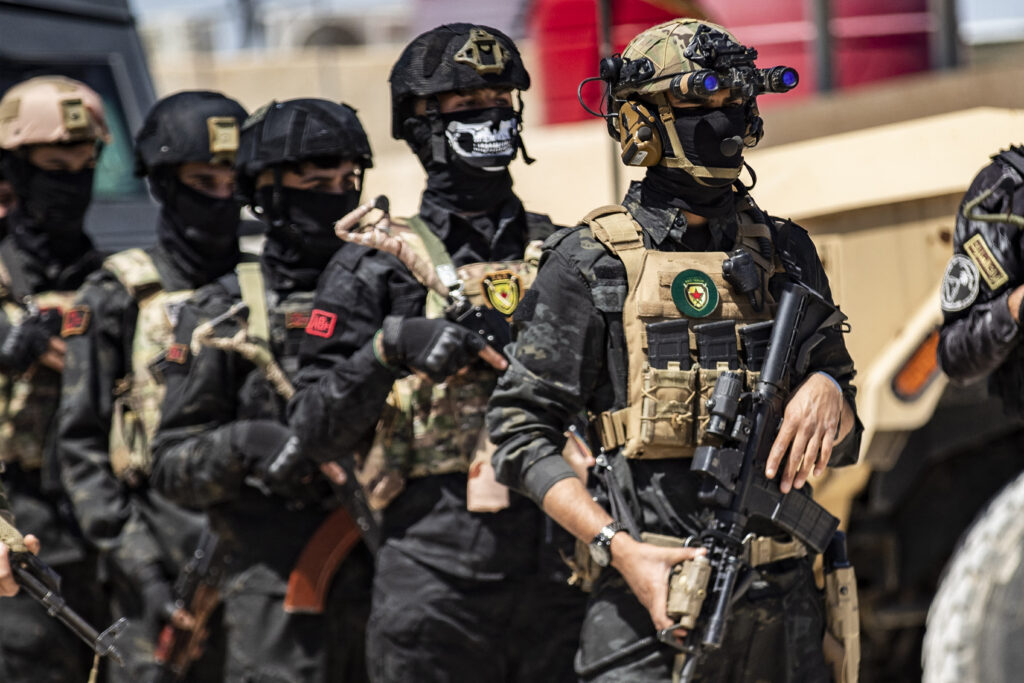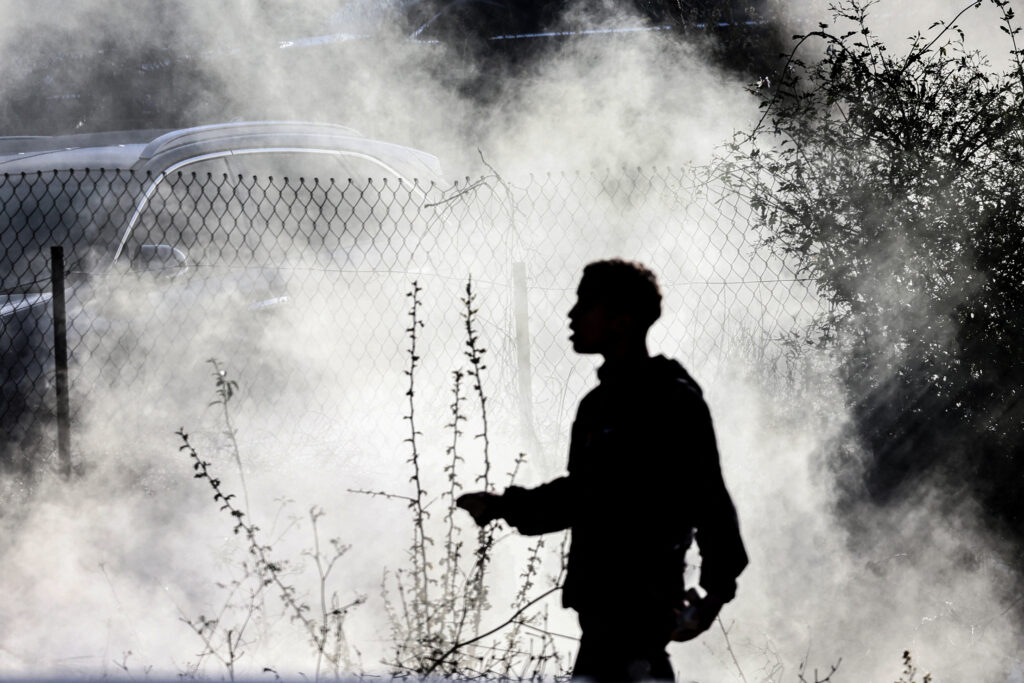In February 2019, the Middle East Institute organised a workshop titled “The Statecraft of Small States: Foreign Policy and Survival Strategies” to examine the various strategies and policies that small states adopt to navigate their regional environments. This issue of Insights carries a paper from the workshop that lays out shelter theory and uses it to analyse Iceland’s relations with its closest partners, the United States, the Nordic states and the European Union, and how they have provided the country with essential political, economic and societal shelter. The paper also analyses Iceland’s search for a shelter provider(s) ever since its main ally, the United States, deserted it in 2006 and 2008. It concludes with a reflection on the relative importance of multilateralism over bilateralism for small states.
CLICK HERE FOR THE PDF
By Baldur Thorhallsson
Small states are a very diverse group. While each faces different challenges, all of them have to compensate for size-related problems. The more successful small states, such as the Nordic states, Belgium, the Netherlands, Austria and Switzerland, have developed domestic features such as democratic corporatism, the welfare state system and a comprehensive public administration to cope with their smallness. These features help such states buffer against internal challenges. However, there are limits to what these small states can do on their own. They need external protectors, states that provide them shelter.
Shelter Theory
Shelter theory is about the external dimension of the inherent size-related difficulties that small states face. The importance of shelter is related to three interrelated features: The reduction of risk in the face of a possible crisis; help in absorbing shocks during a crisis; and, assistance in dealing with the aftermath of a crisis.[1] Small states need external shelter in order to survive and prosper. In fact, small states are dependent on the economic, political, and societal shelter provided by larger states, as well as regional and international organisations.
Political shelter takes the shape of direct and visible diplomatic or military/security backing by another state or an international organisation, and organisational rules and norms.
Economic shelter can include direct economic assistance, help from an external financial authority, beneficial loans, a currency union, favourable market access and a common market, all of which are provided by a more powerful country or by an international organisation.
Societal shelter involves the diffusion of foreign people and ideas in order to avoid social stagnation and to make up for the limited knowledge base in small countries. The traditional literature on international relations and small states often neglects the importance of societal relations. Cultural transactions with the outside world, in terms of a transfer of messages, norms, values and lifestyles, are, in fact, essential for the prosperity of a small community. It is through constant interaction with other cultures and ideas that a society evolves and moves forward.
Protection, however, often comes at a cost. Relations between small and large entities that involve protection are not always beneficial for the smaller entity. A price must often be paid in terms of sacrificing control over national resources and freedom of political manoeuvre. Shelter here is defined as involving external relations that are favourable to the small entity. The validity of shelter theory depends on the proportion of benefits to cost.
Iceland–America Shelter Relations
American assistance was crucial for the prosperity of Iceland from the US occupation of the country in the Second World War to 2006. The United States provided extensive political and economic shelter, as well as some societal shelter. However, the American shelter came with considerable costs, such as a deep division in Icelandic society on the presence of a US military base in the country. There were five main shelter components.
First, the United States and membership of the North Atlantic Treaty Organization (Nato) were essential components of Iceland’s national security. Second, with American assistance, Iceland found shelter within US-dominated international organisations, such as the World Bank and International Monetary Fund (IMF). The United States also provided Iceland with extensive diplomatic backing, negotiating for it favourable trade agreements and access to loans. Third, Iceland’s strategic importance to the United States gave it the leverage to win US and Nato support for its position, which partly helped it prevail over Britain in each of the four Cod Wars — disputes between Iceland and Britain over the former’s extension of its fishing zone or territorial waters. Fourth, the Americans provided extensive economic shelter to Iceland. The US base accounted for 2–5 per cent of Iceland’s gross domestic product (GDP) during the period under study, and the Americans financed operations at Iceland’s Keflavik international airport until 2006. Fifth, in terms of societal shelter, the Americans transferred norms, lifestyles and ideas to the island. The United States became an increasingly attractive location to pursue higher education for Icelanders over the course of the Cold War.
Nevertheless, in 2006 the United States closed its military base in Iceland and refused to assist Iceland when its economy collapsed in 2008 despite providing financial aid to several other countries afflicted by the global financial crisis. Iceland’s long-term ally simply deserted it, regarding the island as no longer of strategic importance. However, the bilateral defence agreement between the two countries is still in place, and the United States is at present increasing its military activity in and around Iceland owing to increased Russian activity in the North Atlantic.
Nordic Co-operation as Shelter Component
Nordic co-operation has provided Iceland with essential societal shelter and partial political and economic shelter. But the societal shelter element has been greatly underestimated. The four main shelter components that Iceland enjoys through Nordic cooperation are as follows.
First, Nordic co-operation has economically sheltered Iceland through the common Nordic labour market and burden sharing arrangements, and, at times, through participation in European integration. Co-operation through the Nordic Council has led to conventions, which allow Nordic citizens to freely travel, work, and reside in any Nordic country. Second, the Nordic states have provided Iceland with important political shelter through diplomatic support, especially within international organisations and, at present, provide Iceland with some security shelter. Third, in the post-war period, Iceland has adhered to the policies of its Nordic neighbours in many matters, and they in turn provide Iceland with more extensive societal shelter than the United States. Such societal shelter includes equal access to the social policies of the Nordic countries and the model these countries serve as for both a welfare system and other important areas of legislation. Progressive ideas continue to be channelled into Iceland through the Nordic states, such as regarding women’s rights and gay rights. The generous access that Icelanders have enjoyed to educational institutions in the Nordic states is perhaps the most important element of all. More than half of Iceland’s students who have studied abroad have done so in the Nordic states. Fourth, Iceland has received important soft security shelter through the close cooperation of the Icelandic Coast Guard (ICG) with its counterparts in Norway and Denmark.
Iceland’s Engagement in European Integration: Shelter and Risks
Iceland’s partial participation in European integration provides a complicated reading in terms of shelter theory.
First, membership of the European Free Trade Area (EFTA) and the European Economic Area (EEA) has provided Iceland important economic shelter. It helps to modernise Iceland’s economy, gives the country access to their internal market (Iceland’s most important market) and contributes substantially to Iceland’s economic growth. On behalf of its members, EFTA has made free trade agreements with 38 third countries. Moreover, the free movement of people within the EEA has not only provided Icelanders with important opportunities abroad (societal shelter elements) but has also served as an important “economic tool” during the country’s economic booms and busts. Second, membership of the EEA has turned out to have much wider reaching societal shelter implications, such as the access it gives Icelanders to institutions of higher education within the European Union and the EU’s educational opportunities, research and funds that support innovation. Third, membership of the Schengen Area, an agreement enhancing free movement within the European Union and selected non-EU states, has provided a more important political shelter than was first anticipated owing to the importance of police collaboration.
However, membership of the EEA gives Iceland a sense of false shelter at times of economic and political crises. Iceland is not a member of the European Union and the latter does not provide assistance in times of need, such as during the 2008 economic crash in Iceland.
Iceland’s Shelter-Seeking Behaviour
Iceland has been desperately looking for a shelter provider(s) since the closure of the US military base and the US refusal to bail it out during the 2008 economic crash.
First, Iceland started by turning to the European Union for assistance. However, the European Union turned down Iceland’s request, citing the fact that Iceland is not a member state. Nevertheless, Iceland applied for membership of the European Union nine months after the economic crash, and the Europhiles in Iceland tried to sell the membership application to the public as a shelter component. However, the so-called Ice-dispute (in which the European Union chose to support Britain and the Netherlands against Iceland in their demands that Iceland compensate their citizens who had lost their investments in savings schemes operated by Icelandic banks) and the euro crisis made it impossible for the Icelandic Europhiles to sell the European Union as a saviour. On the contrary, many Icelanders started to see the European Union as a traitor, and the membership application is now firmly frozen.
Second, Iceland has also sought to strengthen its ties with Nato. As an example of this, the country set up its first defence budget after the closure of the US military base in the country, contributes to Nato funds, and takes part in its missions.
Third, Iceland has made civil security agreements, mainly concerning its waters, with Denmark, Norway, Britain and Canada. Furthermore, airspace surveillance arrangements have been made with various Nato member states, including France, Germany and Britain, and the non-Nato Nordic states, Sweden and Finland, which allow for the temporary presence of their jet fighters in Iceland.
Fourth, increased security co-operation among the Nordic states is significant to Iceland as it provides the country with important political shelter and soft security shelter, for example, in connection with cyber security. Moreover, Iceland is taking initiatives to enhance security co-operation among the Nordic countries, such as regarding search and rescue operations in the Arctic seas.
Finally, Icelandic politicians have also looked to non-traditional sources for support, namely China and Russia. In 2010, Iceland made a currency swap agreement with China, which increased Iceland´s much needed credibility at the time and served as a statement of trust.[2] Iceland was also the first European country to sign a free trade agreement with China, which entered into force in 2014. There is considerable co-operation between the two countries in several policy fields, especially concerning the Arctic. Moreover, the Icelandic administration considered a Russian bailout offer entailing a substantial loan at the height of the 2008 economic crash. While nothing materialised from the Russian offer, the fact remains that Icelandic policymakers were willing to entertain the possibility of a Russian rescue package. Today, Iceland’s relations with Russia are diminishing, while its relations with China seem likely to grow in the future.
Conclusions
Iceland’s limited defence and security capacity, as well as its 2008 economic crash, demonstrate the country´s lack of political and economic shelter. Nevertheless, Iceland’s societal shelter provided by membership of the EEA and Nordic cooperation is solid. The Nordic countries will continue to be important providers of societal shelter but Iceland’s close engagement with the European project through membership of the EEA and the Schengen Area might slowly but steadily take over as the most important societal shelter provider in transferring norms and ideas to Iceland.
The US desertion of Iceland indicates the importance of multilateral political and economic shelter for small states. Iceland has since the desertion been utilising its membership of Nato, the EEA and the Nordic Council to strengthen its defence and enhance its economic growth.
Policymakers in small European states need to closely examine the extent to which existing multilateral shelter arrangements, such as Nato, the European Union, Schengen, the EEA and the Nordic Council, could be more reliable providers of shelter in times of need than a single protector, such as the United States or Britain. Formally binding organisational rules and norms of multilateral arrangements may provide more lasting comprehensive shelter to a small state than bilateral shelter relations.
About the author
Professor Baldur Thorhallsson is a Professor at the Faculty of Political Science and research director at the Centre for Small States at the University of Iceland. He has published extensively on small states, European integration and the foreign policies of the Nordic states. In 2002, Thorhallsson established the Centre for Small State Studies in Reykjavik. He has taught on small states at several universities and was the “Class of 1955” Visiting Professor of International Studies at Williams College, USA, in 2013 and Leverhulme Visiting Professor at the Queen Mary University of London in 2017. Professor Thorhallsson is currently leading a number of research projects on small states.
Image caption:
Nordic and Baltic prime ministers at a press conference before the Nordic Council Session in Stockholm in October 2014. From left are: Norway’s Ms Erna Solberg, Lithuania’s Mr Algirdas Butkevičius, Latvia’s Ms Laimdota Straujuma, Iceland’s Mr Sigmundur Davíð Gunnlaugsson, Finland’s Mr Alexander Stubb, Estonia’s Ms Anne Sulling, and Denmark’s Ms Helle Thorning-Schmidt. Photo: Frankie Fouganthin, shared on Wikimedia Commons.
Footnotes
[1] Baldur Thorhallsson, “Domestic buffer versus external shelter: viability of small states in the new globalised economy,” European Political Science 10, no. 3 (September 2011): 324–36.
[2] Ólafur Ragnar Grímsson, interview by Logi Bergmann Eiðsson, Með Loga, Sjónvarp Símans Premium, 20 September 2018; “Erum ekki að deyja úr þörf fyrir gjaldeyri,”Fréttablaðið, 10 June 2010, http://timarit.is/view_page_init.jsp?issId=323679&pageId=5077783&lang=is&q=K%EDna%20fr%E1.





